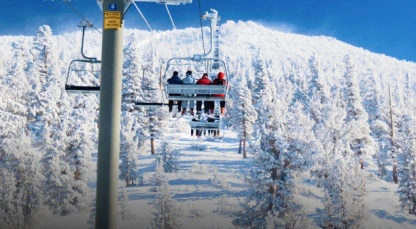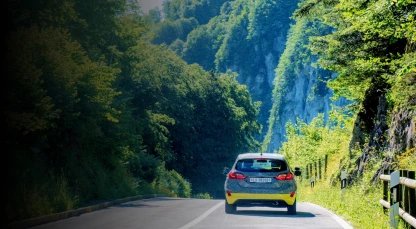Due to maintenance orders placed after 11 PM CEST will not be processed until the next day at 4 AM. If you travel before 4 AM we recommend to buy a physical sticker.
Traversing the Depths: The Story of the Bözberg Tunnel
The tunnel has significantly shortened both the route and the time taken to travel between Basel and Zurich. To find out more about its location, the traffic routes it serves, as well as other useful information about the tunnel and its use, read on.
"First conceived over half a century ago, the Bözberg Tunnel is the fulfilment of an ambitious plan, brought to life by the determination, perseverance and ingenuity of the Swiss Federal Office for Roads (FEDRO) and other project participants."
Gateway to Aargau: The Bözberg Tunnel's Strategic Position
The Bözberg Tunnel is located in the northern part of Switzerland on the A3 motorway (from Basel to Sargans, mostly corresponding to National Road 3) between Basel and Zurich. It was put into operation in 1996, providing a direct alternative to the previously used Belchen Tunnel and enabling the bypass of Brugg. The planning of the Bözberg Tunnel began in the 1950s, and it was completed after about 8 years. The original route meant crossing the Bözberg Pass and then the Aare Valley. It is a useful conduit for traffic heading from Bern and western Switzerland via Zurich and on to Germany and Austria. As part of the toll system, live news and traffic updates are available online.
Bözberg Tunnel - Toll Free
As with most tunnels in Switzerland, a direct fee is not required to use the tunnel. However, since most tunnels are accessed by using tolled routes, buying a digital vignette for Switzerland is essential. "Enhance your experience and enjoyment of the Swiss countryside with the purchase of an e-vignette; your passport to unfettered travel."
Elevation and Length of the Bözberg Tunnel
Here is some useful information and statistics about the Bözberg Tunnel:
| Route | A3 |
| Length | 3 702 metres |
| Section Area | 111 m² |
| Number of Tubes | 2 |
| Number of Traffic Lanes | 2 x 2 (bi-directional) |
| *Typical Travel Time | 2.25 minutes @ 80 km/h |
*Travel time may vary depending on traffic volume and weather conditions.
Terms of Use & Restrictions
Road users planning on passing through the tunnel should be aware of the following:
- Be in possession of a valid driver's licence for the vehicle driven.
- Obey the regulations of the Swiss road network.
- Adhere to any special regulations regarding the class of vehicle driven and load in transit.
- Be aware of the possible risks driving in tunnels.
- Observe the 80 km/h speed limit.
IN CASE OF EMERGENCY:
- Ambulance: 144
- Police: 117
- Firefighters: 118
- Universal European emergency number: 112
- Swiss traffic information service (TCS) - +41 800 140 140
You can request Roadside Assistance in Switzerland using the following numbers:
- Emergency Call / Vehicle Breakdown Service: 140
- TCS Touring Club Switzerland - Toll free number: 0800 808 114
- TCS Touring Club Switzerland - International number: +41 58 8276316
Bözberg Tunnel Online Resources
The tunnel remains open 24/7 throughout the year. However, unforeseen circumstances may require the temporary closure of the tunnel, so it is best to check conditions prior to travel. Check the Bözberg Tunnel Weather on your weather app. There is currently no live webcam available for the Bözberg Tunnel .
Are there alternative routes to the Bözberg Tunnel?
There are alternative routes available to bypass the Bözberg road tunnel in Switzerland. One alternative could be using the A3 and A1 motorways, which would involve a longer journey but may offer different scenic views and potential points of interest.
Additionally, depending on the specific origin and destination, there might be other secondary roads or local routes that can be used to avoid the Bözberg road tunnel. It is advisable to consult a GPS navigation system or a reliable map for the most suitable alternative route based on your specific travel needs and preferences.




